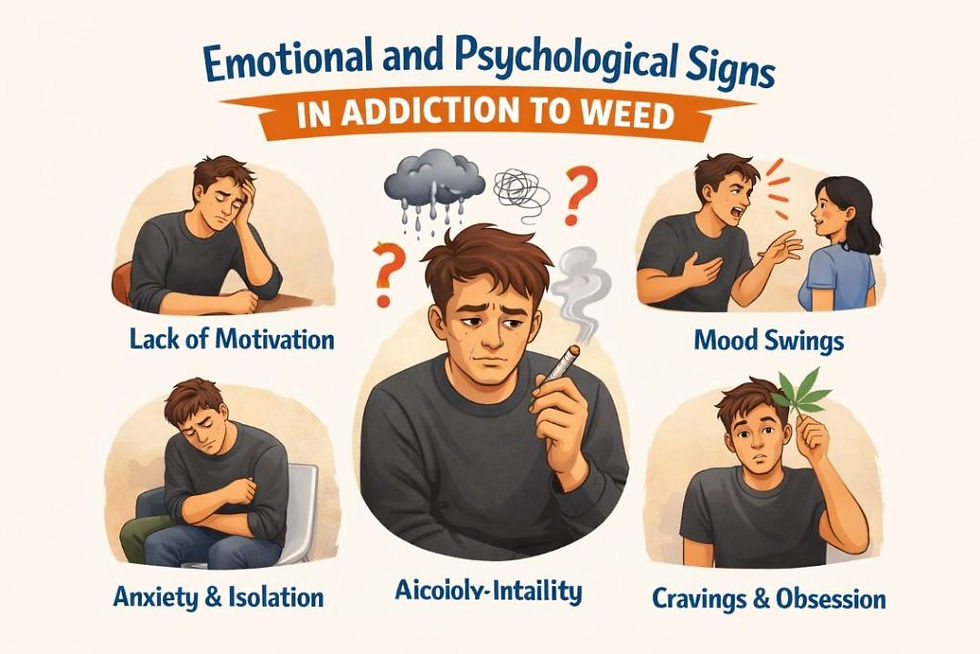Gambling Addiction Therapy & Recovery at Deland Treatment Solutions
- Felicia Parris

- Nov 3, 2025
- 4 min read
Therapy for Gambling Addiction: Finding Freedom Through Support and Treatment
Gambling addiction, also known as compulsive gambling or gambling disorder, is more than a bad habit; it’s a serious behavioral health condition that can deeply impact one’s emotional, financial, and social well-being. For those struggling to stop, therapy offers a path to regain control, rebuild relationships, and live a balanced, fulfilling life.
At Deland Treatment Solutions, we believe that recovery from gambling addiction is possible with the right combination of therapy, support, and professional care. In this article, we’ll explore what gambling addiction looks like, why it develops, and how therapy can help individuals recover and thrive.

Understanding Gambling Addiction
According to the National Council on Problem Gambling (NCPG), an estimated 2 million U.S. adults meet the criteria for severe gambling problems, while another 4–6 million experience mild or moderate issues. Gambling addiction doesn’t discriminate; it affects people of all ages, backgrounds, and income levels.
At first, gambling might seem like harmless entertainment. However, for some, it can quickly spiral into an uncontrollable urge that leads to severe consequences such as debt, relationship strain, and emotional distress.
Common signs of gambling addiction include:
Feeling unable to stop gambling, even after major losses
Lying to loved ones about gambling habits
Chasing losses with more bets
Borrowing money or selling possessions to gamble
Neglecting work, school, or relationships
Recognizing these warning signs early is the first step toward seeking help.
Why Gambling Becomes Addictive
Like substance addictions, gambling stimulates the brain’s reward system, releasing dopamine and creating feelings of excitement or relief. Over time, the brain craves this sensation, leading to compulsive behavior despite negative outcomes.
Several factors can contribute to the development of gambling addiction:
Psychological factors: Stress, depression, trauma, or anxiety
Biological predisposition: Imbalance in brain chemicals linked to impulse control
Environmental triggers: Easy access to casinos or online betting platforms
Social pressures: Desire for status, excitement, or financial gain
Understanding these causes helps professionals design effective, personalized therapy plans that address both emotional and behavioral roots of the addiction.
The Role of Therapy in Gambling Addiction Recovery
Therapy plays a vital role in breaking the cycle of addiction. It provides tools to manage triggers, reshape thought patterns, and build a healthier relationship with money and emotions.
Here are some of the most effective therapy approaches used in gambling addiction treatment:
1. Cognitive Behavioral Therapy (CBT)
CBT is one of the most successful evidence-based treatments for gambling addiction. It helps individuals:
Identify false beliefs about gambling (e.g., “I’m due for a win”)
Replace destructive thinking patterns with realistic ones
Develop coping strategies to resist urges
Research published by the American Journal of Psychiatry shows that Cognitive Behavioral Therapy can significantly reduce gambling frequency and intensity in as little as 8–12 sessions.
2. Motivational Interviewing (MI)
Many individuals struggling with gambling may feel uncertain or unmotivated to change. Motivational Interviewing helps people explore their ambivalence and discover their own reasons for quitting.
Therapists guide clients through open-ended conversations that build motivation and confidence, leading to greater long-term success.
3. Group Therapy and Peer Support
Recovery doesn’t happen in isolation. Group therapy provides a safe space for individuals to share experiences, offer encouragement, and learn from others who have walked similar paths.
Support groups like Gamblers Anonymous (GA) follow a 12-step approach, helping members stay accountable and find community support. Studies have found that people who attend GA meetings regularly show better outcomes and lower relapse rates.
4. Family Therapy
Addiction often affects more than the individual, it impacts loved ones too. Family therapy helps rebuild trust, improve communication, and create a supportive environment for recovery.
It also educates family members on how to set healthy boundaries and avoid enabling behaviors. This collaborative approach ensures the whole family heals together.
5. Dual Diagnosis Treatment
Many people with gambling addiction also experience co-occurring mental health disorders such as anxiety, depression, or substance use. Dual diagnosis treatment addresses both conditions at once, improving recovery outcomes.
At Deland Treatment Solutions, clients receive personalized care that integrates therapy, medication management, and emotional support for overall wellness.
Healthy Coping Strategies for Long-Term Recovery
Overcoming gambling addiction takes time and dedication. Alongside therapy, developing healthy coping habits can make a big difference in preventing relapse.
Here are some positive ways to manage stress and triggers:
Engage in hobbies – Replace gambling with fulfilling activities like art, exercise, or volunteering.
Set financial boundaries – Let a trusted friend manage your money temporarily.
Avoid high-risk environments – Stay away from casinos, betting apps, or social circles that encourage gambling.
Practice mindfulness – Meditation and relaxation techniques help control impulsive urges.
Seek professional support – Ongoing therapy or aftercare programs strengthen resilience over time.
Recovery is not about perfectionit’s about progress and persistence.
Real-Life Transformation: A Story of Hope
Consider Maria, who began gambling online to cope with stress. Over time, it consumed her savings and damaged her relationships. After joining a structured therapy program, Maria learned to identify her emotional triggers, practice mindfulness, and rebuild financial stability.
Two years later, she remains free from gambling and mentors others in recovery groups. Her story proves that with the right support, healing and transformation are always possible.
Empowering Yourself to Heal
Choosing to seek help for gambling addiction is a courageous first step toward freedom and healing. Whether you’re just starting to recognize the problem or looking for continued support, professional therapy can guide you toward long-lasting recovery.
At DeLand Treatment Solutions, our compassionate team provides evidence-based therapies, personalized recovery plans, and a supportive environment where healing truly begins.
If you or a loved one is struggling with gambling addiction, take that first step Call us today at (386) 866-8689, because recovery is not about luck; it’s about making the choice to heal.



Comments